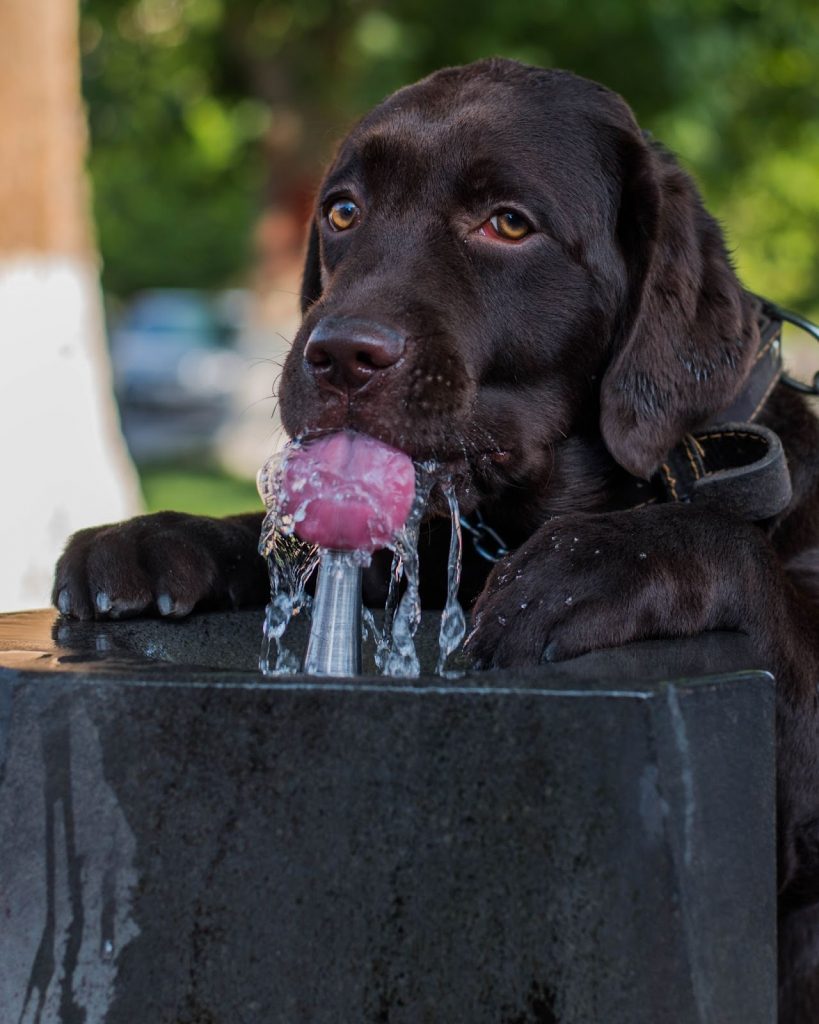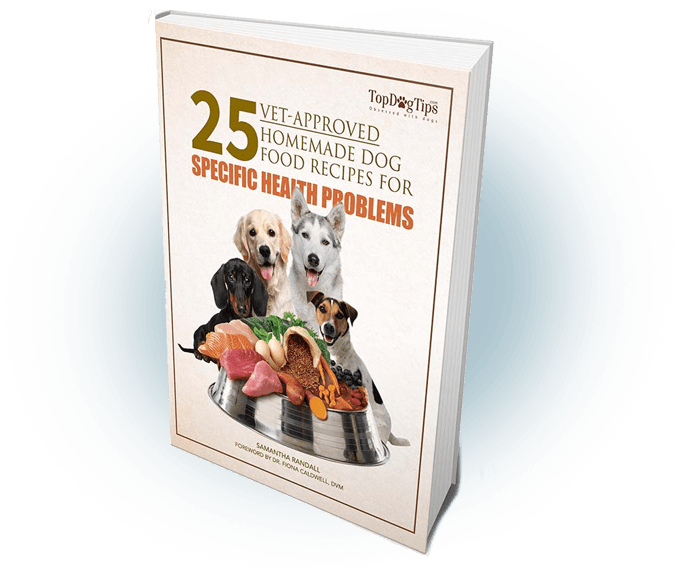
Does your dog suffer from constipation? Seeing your furry friend struggle with this uncomfortable condition can be quite distressing. However, there are simple solutions that can help alleviate constipation and provide relief to your beloved pet.
This article will explore the causes, symptoms, and effective remedies for canine constipation. By understanding these solutions, you can assist your dog in maintaining a healthy digestive system and overall well-being.
Constipation in dogs occurs when they have difficulty passing stool. It is a common problem that can affect dogs of all ages and breeds. Various factors can contribute to constipation, such as inadequate fiber intake, dehydration, lack of exercise, and underlying health conditions.
By understanding the causes, you can take appropriate steps to prevent and treat constipation.

There are several potential causes of constipation in dogs. One common factor is a lack of fiber in their diet. Fiber plays a vital role in maintaining regular bowel movements by adding bulk to the stool.
When it comes to fiber intake, it's important to note that dogs are primarily carnivorous animals. While their ancestors in the wild would consume the fiber from the stomach contents of their prey, domesticated dogs rely on the fiber provided in their diet. A lack of fiber can lead to sluggish bowel movements and constipation. It's crucial to ensure that your dog's diet includes an appropriate amount of fiber to maintain regularity.
Dehydration can also contribute to constipation in dogs. Just like humans, dogs need adequate water to keep their bodies functioning properly. When a dog becomes dehydrated, the body tries to conserve water, making the stool harder and more difficult to pass.
Providing your dog with fresh water at all times and encouraging them to drink regularly can help prevent constipation. With that in mind, I highly recommend checking out my picks for the Best No Spill Dog Water Bowls!
In addition to fiber and hydration, exercise is another crucial factor in preventing constipation. Regular physical activity helps stimulate the digestive system and promotes healthy bowel movements. Dogs that lead a sedentary lifestyle are more prone to constipation. Incorporating daily walks, playtime, and other forms of exercise into your dog's routine can help keep their digestive system in good working order.
While lifestyle factors play a significant role in canine constipation, it's important to be aware of underlying health conditions that can contribute to this problem.
Certain medical conditions can contribute to constipation in dogs. Intestinal blockages, such as tumors or strictures, can obstruct the passage of stool, leading to constipation. Anal gland issues, such as impaction or infection, can also cause discomfort and difficulty in passing stool.
It's essential to monitor your dog's overall health and consult with a veterinarian if you suspect an underlying condition may be the cause of their constipation.
When it comes to medications, certain drugs can have constipation as a side effect. If your dog is on any long-term medications, it's important to discuss with your veterinarian whether constipation could be a potential issue and what steps can be taken to mitigate it.
Ingestion of foreign objects is another common cause of constipation in dogs. Dogs are known for their curious nature and tendency to explore the world with their mouths. Unfortunately, this can lead to them swallowing objects that can obstruct their digestive system, causing constipation. It's important to keep a close eye on your dog and prevent them from ingesting objects that could pose a risk.
Identifying constipation in dogs can be challenging, as they may not exhibit obvious signs of discomfort. However, there are several symptoms to watch for. If your dog has not defecated (pooped) for more than 48 hours, strains excessively while attempting to go, or passes small, dry, and hard stools, he may be suffering from constipation. Other signs include decreased appetite, lethargy, and abdominal discomfort. If you observe any of these symptoms, it is essential to take action promptly to relieve your dog's discomfort.
It's important to note that constipation can be a sign of an underlying health issue, so it's crucial to consult with a veterinarian if your dog experiences persistent or severe constipation. They can provide a proper diagnosis and recommend appropriate treatment options to alleviate your dog's discomfort and promote healthy bowel movements.
A balanced diet plays a crucial role in maintaining your dog's digestive health. Providing them with the necessary nutrients and fiber to support regular bowel movements is vital. Certain foods can promote proper digestion and help alleviate constipation in your furry friend.
When it comes to your dog's digestive health, there are a few key factors to consider.
First, the type of food you feed them can greatly impact their digestive system. Dogs require a combination of proteins, carbohydrates, fats, vitamins, and minerals to thrive. A well-balanced diet ensures that all these essential nutrients are provided in the right amounts.
Additionally, the quality of the ingredients in your dog's food is equally important. Opting for high-quality, natural ingredients can significantly improve their overall well-being. These ingredients are often easier to digest, reducing the risk of digestive issues such as constipation.
If you're looking for amazing high-quality dog food that's custom-made to fit YOUR pup's needs, check out our in-depth Nom Nom dog food delivery review.

When it comes to fighting constipation, some natural foods can work wonders for your dog's digestive system. Pumpkins and sweet potatoes are rich in fiber and can soften the stool, making it easier to pass. Adding canned pumpkin or steamed sweet potatoes to your dog's meals can be beneficial. The fiber content in these foods helps regulate bowel movements and prevents constipation.
Another food that can aid in alleviating constipation is plain yogurt. Yogurt contains probiotics, which are beneficial bacteria that promote a healthy gut. These probiotics help regulate the digestive system and can improve overall gut health, making it easier for your dog to pass stool.
Incorporating fruits like apples and bananas into your dog's diet can also provide extra fiber and promote regular bowel movements. Apples are a great source of soluble fiber, which adds bulk to the stool and helps prevent constipation. Bananas, on the other hand, are rich in potassium, which can help regulate fluid balance in the body and maintain healthy digestion.
While certain foods can aid in relieving constipation, it is important to be aware of foods that can worsen the condition. Avoid feeding your dog high-fat or low-fiber foods, as these can contribute to constipation. High-fat foods are harder to digest and can slow down the digestive process, leading to constipation.
Additionally, it is best to refrain from giving your dog bones or any indigestible items that can lead to intestinal blockages. Bones, especially cooked ones, can splinter and cause serious harm to your dog's digestive system. Indigestible items like plastic toys or rawhide chews should also be avoided, as they can obstruct the intestines and result in constipation.
Maintaining a balanced diet for your dog is essential for their digestive health. You can help prevent constipation and promote regular bowel movements by providing them with the right nutrients and fiber. Remember to consult your veterinarian for specific dietary recommendations based on your dog's needs.

Maintaining proper hydration is essential for your dog's overall well-being and digestive health. Sufficient water intake helps soften the stool, making it easier to pass. Dehydration can exacerbate constipation and lead to more severe health issues.
Encouraging your dog to drink an adequate amount of water is crucial. Make sure fresh water is always available for your furry friend. If your dog is not fond of drinking water, you can add flavorless broth to their water bowl to entice them.
Additionally, wet dog food can help increase their water intake, as it has a higher moisture content compared to dry kibble.
It is important to recognize the signs of dehydration in dogs. If your dog has sunken eyes, dry and sticky gums, lethargy, or reduced skin elasticity, they may be dehydrated. Promptly address dehydration by encouraging your dog to drink water and consult with your veterinarian if necessary.

Regular exercise is not only beneficial for your dog's physical health but also for their digestive system. Physical activity stimulates the muscles in the gastrointestinal tract, promoting proper digestion and bowel movements.
Engaging your dog in regular exercise helps stimulate its digestive system. Activities like brisk walks, jogging, and playing fetch can encourage regular bowel movements. Exercise also helps prevent obesity, which can contribute to constipation in dogs.
When it comes to exercising your dog, finding activities they enjoy is key. Incorporate activities that encourage movement and engage their muscles. Consider taking them to a dog park, playing with interactive toys, or participating in obedience training classes. Remember to tailor the exercise routine to your dog's age, breed, and physical abilities.
In some cases, over-the-counter solutions can help alleviate constipation in dogs. However, it is important to use them with caution and under the guidance of a veterinarian.
There are certain laxatives and stool softeners available for dogs. These can provide immediate relief in mild cases of constipation. However, it is crucial to consult your veterinarian before administering any over-the-counter remedies to ensure appropriate dosage and safety.
Honestly, the best time to call your vet is BEFORE you try home remedies, as constipation could be a sign of something more serious. However, if your dog's constipation persists or worsens despite trying home remedies, it is especially important to seek veterinary care.
Your vet can perform a thorough examination and recommend a suitable treatment plan based on your dog's specific condition. They may prescribe medications or perform further tests to determine the underlying cause of constipation.
By understanding the causes, symptoms, and remedies for canine constipation, you are equipped to help your dog overcome this uncomfortable condition.
Remember to provide a balanced diet, ensure proper hydration, encourage regular exercise, and seek appropriate veterinary care when necessary. Your furry friend can enjoy a healthy digestive system and a happier life free from constipation with your care and support.


info@seniorpups.com
Copyright 2023 – All Rights Reserved by Senior Pups